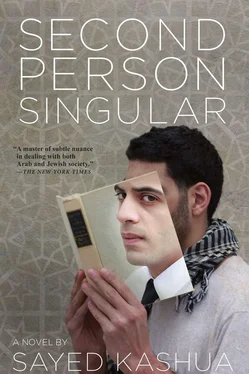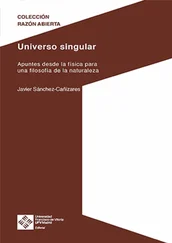“Hold on,” the department head said, sifting through the pictures on the table, “I’m missing the self-portrait.”
P.O. BOX
I hurried out to check the mail the next day to see whether I’d gotten an answer. After applying as Yonatan I’d also gotten myself a post office box with his name. You had to have a mailing address to put on the application form and I remembered from back when I was a student that some of those who didn’t have a permanent address rented a post office box. Before mailing the application off to Bezalel, I rented a box for a few dozen shekels at the King George Street post office, near the café where I worked. Each morning, on the way from Beit Hakerem to the café, I stopped in at the post office and checked my box. Sometimes I found advertisements or mail with someone else’s name, but now an entire month had passed since the interview and I had not heard a word from the Bezalel Academy of Arts and Design.
Before the interview I had not been sure I even wanted to go there and I was pretty sure that even if I did want to there was no way I’d dare embark on a four-year degree with a stolen identity. But once I’d gone to the interview there was nothing I wanted more than the piece of paper that said I had been accepted. I wanted to know that I had convinced the panel that my photographs were good enough to continue on in the field. I just wanted to be told that I was good. I constantly imagined myself reading from a piece of paper embossed with the Bezalel seal, “We are pleased to inform you. .” During those days of waiting I was estremely sorry I had not completed the third assignment, the self-portrait, even though the head of the department had smiled forgivingly when I offered my explanation for its absence: “It hasn’t come into focus yet.”
By the fourth week of waiting, I had convinced myself that applying to Bezalel’s school of photography had been a terrible mistake. Sure I loved photography more than anything else, but I was a naive idiot, believing that a few months of tinkering would get me into the most prestigious art school in the country, one that only took a handful of students each year, all of whom had studied art in school, not learned it on their own in an attic that reeked of medicine and having their pictures developed in an old machine in a crummy store in the middle of the Armenian Quarter.
School was set to start in a couple of months and I knew that the acceptance letters must have been sent long ago. Clearly I had not gotten in. Two months was too little time, especially for out-of-town students who had to find a place to live and get settled in Jerusalem before the school year started. Nonetheless I continued to check the post office box every morning and afternoon. In the middle of the week, when the café was relatively empty, I’d head out and check the box compulsively — sometimes five times in a single shift. During those days I started to get the feeling that someone was onto me, that they’d discovered my true identity, because even if I’d been rejected I should still have been given notice of some kind. Maybe someone who’d known Yonatan in school or someone who knew the Forschmidt family, or someone who knew me, who picked up the foreign intonation and had his suspicions had turned me in. The criminal implications of what I’d done, the theft of Yonatan’s identity, suddenly became clear and in my mind I no longer saw myself reading an acceptance letter but began to envision police officers arriving at the house in Beit Hakerem or at the café, or, worse, at my mother’s place, looking for the imposter. All I wanted was some word from Bezalel, preferably a rejection letter, so I could put the whole affair behind me and get rid of all the stress.
I tried convincing myself that I’d get a pretty lenient sentence. I’d be arrested, no doubt about that, and I’d have a criminal record, but since the identity theft had not been for the purpose of fraud — the pictures were truly mine — I probably wouldn’t have to do time, at least not a lot of time. I had been asked to provide a Bagrut certificate and I had given them Yonatan’s, but I had one of my own and mine was just as good as his. My assumed identity for the purpose of work at the café didn’t seem like the kind of crime you did time for, either.
“Your Honor,” I imagined myself saying from the stand, “all I did was provide a different name than my own. Ask the owner, though, I was his best worker. Ask the clients. My sole intent was to get a job as a waiter and not a kitchen worker.”
The prosecution’s attempts to attribute a nationalistic element to the crime, to say that my goal had been to harm Israelis, would surely be discredited by the brilliant young lawyer, Majdi, whom I would have to contact even though I had no idea how I would explain my actions to him. It would be easy to show that I was not politically active. I’d never been in a rally, never voted for the Knesset, never voted in the local council elections, never even voted in the elections for Arab student council or in the general elections on campus.
“A waiter, Your Honor,” I imagined myself concluding my argument. “All I wanted to be was a waiter.”
I used to spend the afternoons, on my way from the café to the house, thinking about an immediate escape. I practiced the lines I would use on Osnat. “Please tell Ruchaleh that there’s been a family emergency.” Or, “I have to go home and be with my mother.” Or, “There’s a bit of trouble in the village.” All lines that were tailor-made for Osnat and Ruchaleh, spiced with a dash of mysterious Oriental drama so they wouldn’t ask too many questions, merely accept that a situation had arisen that required my immediate attention. I had to be with my mother, and they would understand that I had no choice but to leave and they would find someone else on very short notice to pick up the shifts. But what if they didn’t forgive me for leaving like that? What if they were offended? Well, screw them, I thought to myself. True, they didn’t ridicule me or underestimate me, but the salary they had been paying me was a joke. The monthly salary did not correlate at all to the sixteen hours a day that I worked, and the only reason I was able to get by was because I had no rent to pay and I made do with a fold-out couch for a bed.
They can both go to hell, the two of them and the guy with the frozen gaze. Tonight is the night I bail. I’ll call Osnat from the central bus station and tell her I’m leaving Jerusalem and then hang up. She could shove it. Neither she nor Ruchaleh would come looking for me. Why would they? What good would they get out of it? I hadn’t violated any agreement, there was no contract, and they couldn’t demand anything of me just as I wasn’t demanding anything of them. Unlike Osnat, I had no benefits — no sick days, no vacations, no worker’s insurance. Nothing. A defenseless day laborer. Just as they could boot me out whenever they saw fit so, too, could I leave whenever I felt like it. They’d find another Arab to take my place. He’d be happy to have the job, no questions asked. Same goes for the café owner. I wouldn’t even call him. Screw him and the way he talked about the kitchen workers behind their backs, patting them on the shoulders and then talking about them like scum. So proud of the few words he knew in Arabic, the greetings and the curses, which he used as if they were a joke, waxing on about the techniques he’d developed to tame his Arab workers to make them follow his commands.
“You have to constantly remind them who’s boss,” he told me once, letting me in on the tricks of his trade. “If you let your guard down even the littlest bit, they’ll eat you alive.”
During one of those days, while I was bracing myself for arrest and planning my escape from Jerusalem, I heard a girl’s voice call me from behind. I had just finished up at the café and was on my way to the bus stop on King George Street. I didn’t turn around. “Yonatan,” she called again, this time from closer. I turned around, scared, and I saw number six smiling at me and plucking little earphones out of her ears.
Читать дальше












